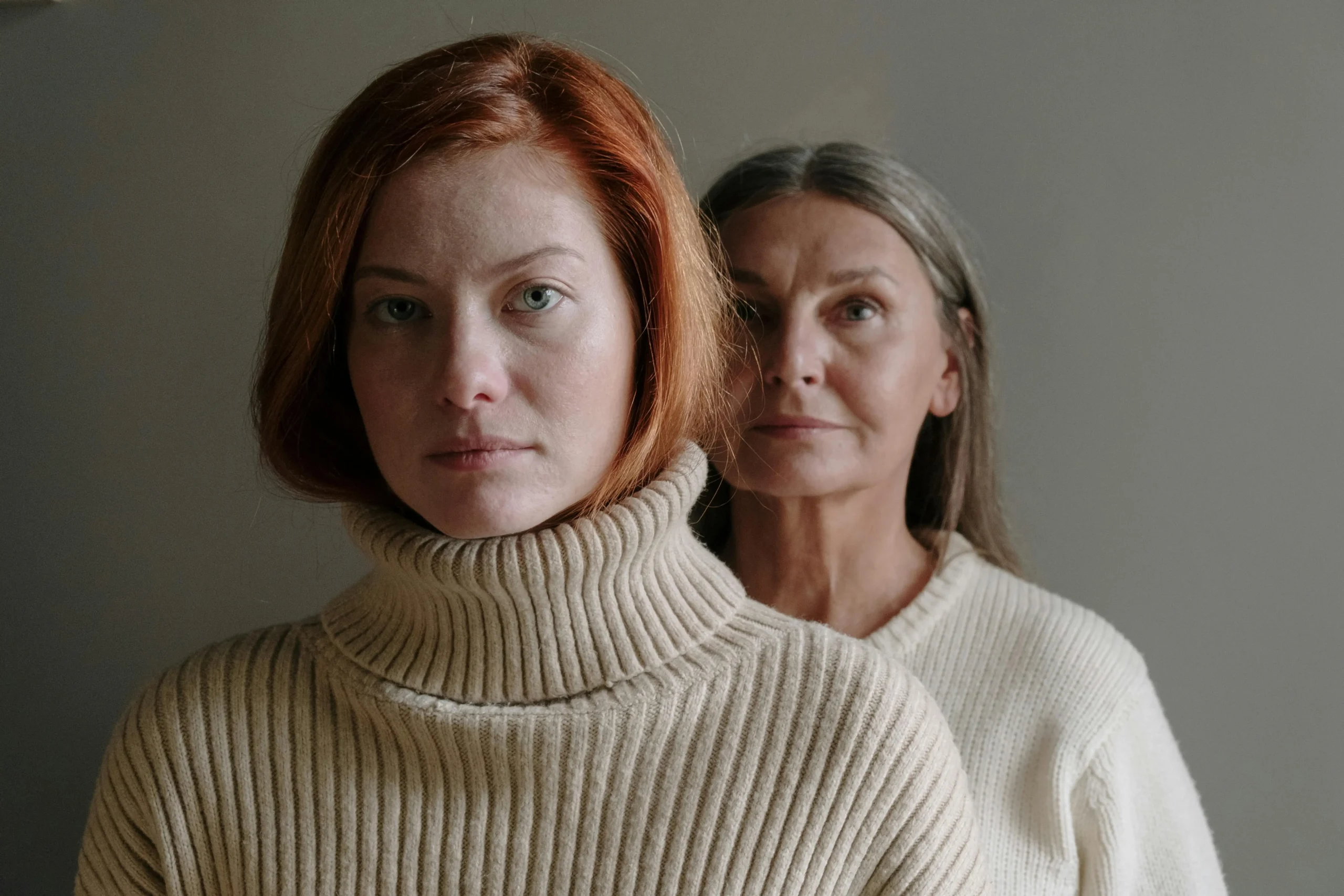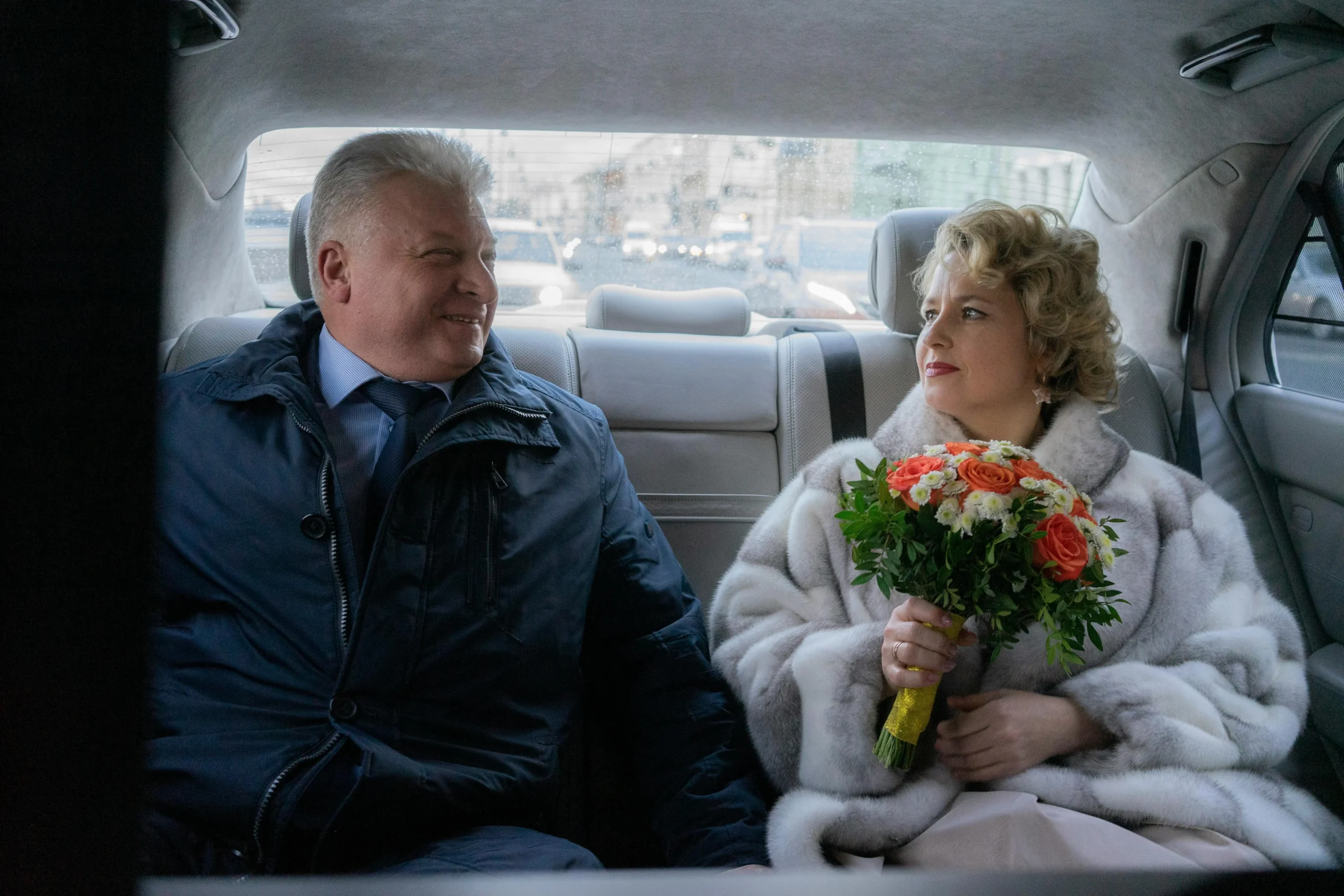Introduction: Why Age Gap Relationships Still Spark Fascination and Debate
Let’s be honest, age gap relationships have always drawn a bit of curiosity, judgment, and fascination. Whether it’s the latest celebrity couple with a 20-year difference or that one friend who found love with someone twice their age, people tend to have strong opinions. I’ve seen it firsthand—raised eyebrows, awkward questions, and unsolicited advice are all part of the package.
But here’s the truth: in today’s world, love doesn’t always come in the same-age box. More and more people are pushing past the old-school rulebook, proving that emotional connection, shared values, and mutual respect often matter more than the number of candles on a birthday cake.
Still, I get it—age gap relationships raise questions. Are they healthy? Do they really last? Is there a power imbalance? Through this article, I want to explore these complexities honestly. We’ll bust some myths, talk about the real challenges, and celebrate the unique beauty of these partnerships. If you’ve ever wondered why relationships are hard or how love can thrive despite age differences, you’re in the right place.
What Are Age Gap Relationships?
Defining the Age Gap in Relationships
At its core, an age gap relationship is a romantic connection between two adults who have a significant difference in age—often 10 years or more. While there’s no hard-and-fast rule, society tends to notice and judge when couples visibly look like they’re from different generations. But even smaller age gaps—say, 3 to 5 years—can impact dynamics in certain cultural or emotional contexts.
In some parts of the world, it’s considered perfectly normal for an older man to date a younger woman. In others, the reverse still challenges deeply ingrained gender norms. I’ve heard stories from couples where even a seven-year difference triggered comments like, “Isn’t he too young for you?” or “What could you two possibly have in common?”
The thing is, age doesn’t define emotional intelligence or maturity. Managing emotional triggers in romantic relationships, regardless of age difference, has more to do with self-awareness and less to do with how long you’ve been on this planet. I’ve met 25-year-olds with wisdom beyond their years and 50-year-olds still chasing emotional stability. Age is a number; connection is the real currency.
Prevalence & Changing Social Norms Around Age Gap Relationships
What once would’ve been scandalous is now slowly becoming normalized. According to Pew Research, about 8% of married heterosexual couples in the U.S. have an age difference of 10 years or more.
So what’s changing? For one, online dating platforms have revolutionized how we meet. We’re no longer confined to our immediate age-based social circles. Apps like Tinder and Bumble allow users to adjust their age preferences—and in doing so, expand the dating pool across generations.
Then there’s the shift in gender dynamics. Women are more empowered than ever, and with that comes a freedom to choose partners based on compatibility rather than tradition. The rise of “cougar” culture and older female role models dating younger men have chipped away at the stigma. And as gender roles blur, age gaps become less about power and more about partnership.
Still, we can’t ignore that emotional triggers that cause relationship conflicts often come from societal judgment. From family disapproval to workplace gossip, external pressure can strain even the healthiest of connections. But for couples who communicate openly and hold firm in their bond, these challenges become character-building moments.
The Dynamics of Age Gap Love
Emotional Maturity & Compatibility in Age Gap Relationships
Let’s get this straight—age gap relationships are often unfairly labeled as emotionally mismatched. But I’ve learned that maturity doesn’t arrive on your 30th birthday. It’s built through experience, trauma, self-reflection, and how someone handles life’s curveballs.
Sure, two people at very different life stages may process conflict differently. But emotional compatibility isn’t about syncing calendars—it’s about speaking the same emotional language. In fact, many age gap couples I’ve spoken with say the age difference actually enhances their dynamic. Older partners often bring grounding and perspective, while younger partners introduce curiosity and passion—a balance that nurtures mutual growth.
Research supports this. A study published in the Journal of Marriage and Family found that emotional closeness, communication, and shared goals are far stronger indicators of success than age alone (source).
That’s why, instead of asking, “Can it work?”—we should be asking, “Are they emotionally aligned?”
Power Dynamics & Relationship Equality: Striking the Balance
This is where age difference often raises the biggest red flags. People assume that the older partner in age gap relationships holds more financial, emotional, or social power. And yes—there are relationships where that’s true, but power imbalance isn’t exclusive to age gaps. It can exist in any dynamic.
The key is mutual respect and intentional decision-making. When both partners have a voice, support each other’s goals, and create space for individual growth, equality naturally follows. I’ve seen couples where the younger partner is the main breadwinner or where both handle finances jointly—proof that balance is possible.
To maintain this balance, open communication about boundaries, goals, and autonomy is crucial. It prevents relationships from sliding into unhealthy parent-child roles or dependency traps. And honestly? The healthiest age gap couples I know prioritize being equals above everything else.
Life Stages & Diverging Priorities: When Timing Doesn’t Align
One of the trickiest challenges in age gap relationships is managing different timelines. Picture this: one partner is just launching their career while the other is eyeing early retirement. Or one is dreaming of parenthood, while the other already has grown kids.
These mismatches in priorities can stir up everything from guilt to resentment—especially if left unspoken. But here’s the good news: with transparency and flexibility, it’s entirely possible to bridge the gap.
Ask yourself: Can we support each other’s dreams even if they’re unfolding at different speeds? Many couples find creative compromises—like choosing to travel before settling down, freezing eggs for future family plans, or redefining what “retirement” means as a couple.
These conversations are tough, but they’re also opportunities. They force couples to grow through vulnerability and align their evolving visions, not just their present moment.
Social Stigma & External Pressures in Age Gap Relationships
Despite growing acceptance, age gap relationships still attract judgment. From side-eyes at dinner parties to full-blown opposition from family, external pressure can become a heavy emotional tax.
I’ve had friends who were called “gold diggers,” “cradle robbers,” or worse—all because of who they loved. The societal assumption that these relationships are inherently flawed or transactional adds a psychological burden, sometimes even impacting self-esteem and confidence.
Studies show that social stigma can lead to increased stress, anxiety, and even depression in couples who don’t receive support from their communities (source). And unfortunately, emotional triggers that cause relationship conflicts often stem from this judgment.
But resilience is built when couples unite against the noise. Therapy, supportive friends, and affirming spaces can all help counteract the negativity. More importantly, couples need to validate each other constantly—because the world won’t always do it for them.
Health, Aging & Future Planning: Navigating the Physical Realities
Let’s be real—aging doesn’t pause for love. In age gap relationships, one partner may experience health challenges sooner, or may be thinking about end-of-life plans long before the other.
This isn’t something we like to talk about, but we should. Addressing the uncomfortable—insurance, wills, caregiving, long-term health—doesn’t mean you’re being pessimistic. It means you’re choosing partnership through all seasons.
Couples who have these conversations early tend to fare better emotionally and logistically. And with longer lifespans and better healthcare, the gap between “young” and “old” isn’t what it used to be. Many age gap couples are defying traditional aging narratives by staying active, adventurous, and connected well into later decades.

The Unique Strengths of Age Gap Relationships
Mutual Learning & Personal Growth: Lessons Across Generations
One of the most beautiful things I’ve noticed in age gap relationships is the constant learning loop. The older partner often brings insight, mentorship, and calm to the relationship. The younger partner injects new ideas, curiosity, and a sense of play.
It’s not just about “teaching” each other—it’s about evolving together. This kind of dynamic creates space for personal growth, emotional healing, and even healing from emotional triggers in past relationships. I’ve seen people reinvent themselves, gain confidence, and discover new passions—all because their partner challenged them to grow.
Challenging Stereotypes & Expanding Horizons in Love
Let’s face it—age gap relationships break the mold. And that’s a good thing. These couples are rewriting the script on what love should look like.
Whether it’s challenging heteronormative expectations, ageism, or outdated gender roles, these relationships prove that compatibility has nothing to do with the number on your birth certificate. Instead, it’s about energy, emotional connection, and understanding emotional triggers in long-distance relationships or close ones alike.
By simply existing and thriving, age gap couples open the door for more inclusive, nuanced conversations about love.
Resilience & Adaptability: Thriving Through the Challenges
Finally, let’s talk about strength. Couples in age gap relationships often have to face more external and internal tests than the average pair. And yet, those who endure become incredibly resilient.
They develop next-level communication skills. They practice empathy like a muscle. And they often build a deep, almost unshakable bond—because they’ve had to weather more storms.
This kind of relationship teaches adaptability. It teaches how to pivot, to compromise, and to hold space for two very different life narratives in one shared story.
Real Challenges to Consider in Age Gap Relationships
Generational & Cultural Differences: More Than Just Age
Let’s not sugarcoat it—being born in different decades can bring more than just age differences. Age gap relationships often come with generational gaps in values, habits, and even sense of humor. One partner may quote Nirvana while the other is into Olivia Rodrigo. Or one may lean toward phone calls while the other lives on memes and voice notes.
These differences can lead to friction—especially when it comes to parenting styles, career goals, or social issues. And if you come from different cultures as well? That’s a double layer of learning and unlearning.
But here’s what I’ve seen work: curiosity over criticism. When you view your partner’s perspective as a lens into a different world instead of a threat to your own, you open up space for growth and genuine connection.
In fact, understanding and respecting these generational shifts is one of the best ways to address why are relationships hard in the first place. Every couple has differences—but not every couple commits to understanding them.
Family & Social Resistance: When Love Meets Disapproval
One of the most heartbreaking challenges in age gap relationships is pushback from the people who are supposed to love you unconditionally. Family members may express concern—sometimes from a place of love, other times from outdated beliefs. Friends might raise eyebrows. Strangers might not even bother hiding their judgment.
I remember talking to a woman whose parents refused to attend her wedding because her partner was 20 years older. She told me, “They thought I was being manipulated. But they never gave him a chance.”
The emotional toll of this kind of rejection is real. It can create cracks in the relationship if not handled carefully.
The antidote? Boundaries and support systems. You don’t have to win everyone’s approval—but you do need people who see you, hear you, and honor your truth. Surround yourself with friends, mentors, or even therapists who uplift your relationship instead of questioning it.
And remind yourself regularly that why a relationship fails isn’t always due to internal issues—sometimes, it’s the weight of external disapproval that causes the most damage.
Emotional Load & Dependency Risks: Balance Is Everything
There’s a fine line between supporting your partner and carrying them emotionally. And in age gap relationships, this can get blurry fast.
Sometimes the younger partner unconsciously slips into a student role—always seeking advice, validation, or guidance. Other times, the older partner takes on too much responsibility, becoming a caretaker rather than a lover.
This dynamic can feel comforting in the short term but toxic in the long run. Love shouldn’t feel like babysitting—or being babysat. Instead, the healthiest relationships I’ve observed emphasize emotional independence and shared responsibility.
It’s important to ask: Are both of us contributing emotionally? Are we making space for each other to grow individually?
This directly ties into why are relationships difficult—especially when one person is unintentionally burdened with all the emotional labor. By checking in regularly, couples can avoid falling into these traps and instead build a partnership rooted in equity, not obligation.

How to Make Age Gap Relationships Work
Open Communication: Say the Hard Stuff Out Loud
In any relationship, honesty is the oxygen. But in age gap relationships, it’s the life support system. You must be able to talk openly about fears, values, and the unique challenges that come with your age difference.
Don’t avoid the tough topics—retirement plans, family planning, even long-term health. The more you say out loud, the less power your fears have over your connection.
Weekly check-ins, journaling together, or even couple’s therapy can all help you stay aligned and emotionally connected.
Mutual Respect: Different Doesn’t Mean Unequal
Age doesn’t make one partner “wiser” or more right. Respect is about valuing each other’s experiences—not ranking them.
I’ve seen relationships thrive when both people listen without assumptions and speak without condescension. That includes respecting differences in music taste, lifestyle pace, or even political leanings.
And remember: why a relationship fails often comes down to a lack of respect, not a lack of love. Hold each other in high regard, even when you don’t see eye to eye.
Adaptability: Life Changes—So Should You
The most successful age gap relationships are the most adaptable ones. Maybe your partner wants to move to a quieter town while you’re still climbing your career ladder. Maybe their health changes and your travel plans need to shift.
Adaptability doesn’t mean giving up your dreams—it means learning how to evolve as a team. Flexibility is the superpower that makes love last.
Support Systems: Don’t Go It Alone
Whether it’s close friends who get your dynamic, a therapist who understands your challenges, or an online community of age gap couples—you need people in your corner.
Navigating why are relationships hard becomes easier when you’re not isolated. Let others support you. And if needed, seek professional counseling to unpack social stigma, power imbalances, or even communication roadblocks.
Ongoing Personal Development: Keep Growing Outside the Relationship
Lastly, don’t forget who you are outside your relationship. Your passions, goals, and independence matter just as much inside an age gap relationship as they would in any other.
When both partners continue to grow individually, the relationship doesn’t just survive—it thrives. Personal development adds richness to your shared life and prevents unhealthy enmeshment.
Conclusion: Love Beyond the Numbers
If there’s one thing I’ve learned from writing—and living—about relationships, it’s this: love doesn’t follow a formula.
Age gap relationships might not fit the mold, but they hold just as much potential for joy, fulfillment, and long-term success as any other. Yes, they come with unique hurdles. But they also come with unique rewards—deep wisdom, playful energy, and a perspective that spans generations.
So if you find yourself falling for someone outside your “age range,” ask yourself not “Is this allowed?” but “Is this real?”
Because in the end, it’s not the years between you that count—it’s the respect, connection, and commitment you build together.
Break the mold. Own your story. And let love lead—no matter the number.

FAQs: Age Gap Relationships
Q1. What is an age gap relationship?
A. An age gap relationship is a romantic partnership where there is a significant age difference, typically 10 years or more. It’s based on mutual respect and shared values, despite societal misconceptions.
Q2. Why are age gap relationships so controversial?
A. Age gap relationships often face controversy due to societal stereotypes about emotional maturity, power imbalances, and life goals, though many couples successfully navigate these challenges.
Q3. What are the main challenges in age gap relationships?
A. Challenges include generational differences, societal stigma, and varying life stages. Open communication and mutual respect are key to overcoming these hurdles.
Q4. Can age gap relationships work long-term?
A. Yes, age gap relationships can thrive long-term with mutual growth, emotional support, and adaptability, focusing on shared values and overcoming differences.
Q5. How do you deal with family disapproval in age gap relationships?
A. To deal with family disapproval, set healthy boundaries and build a supportive network of friends and allies while maintaining open communication with your partner.

